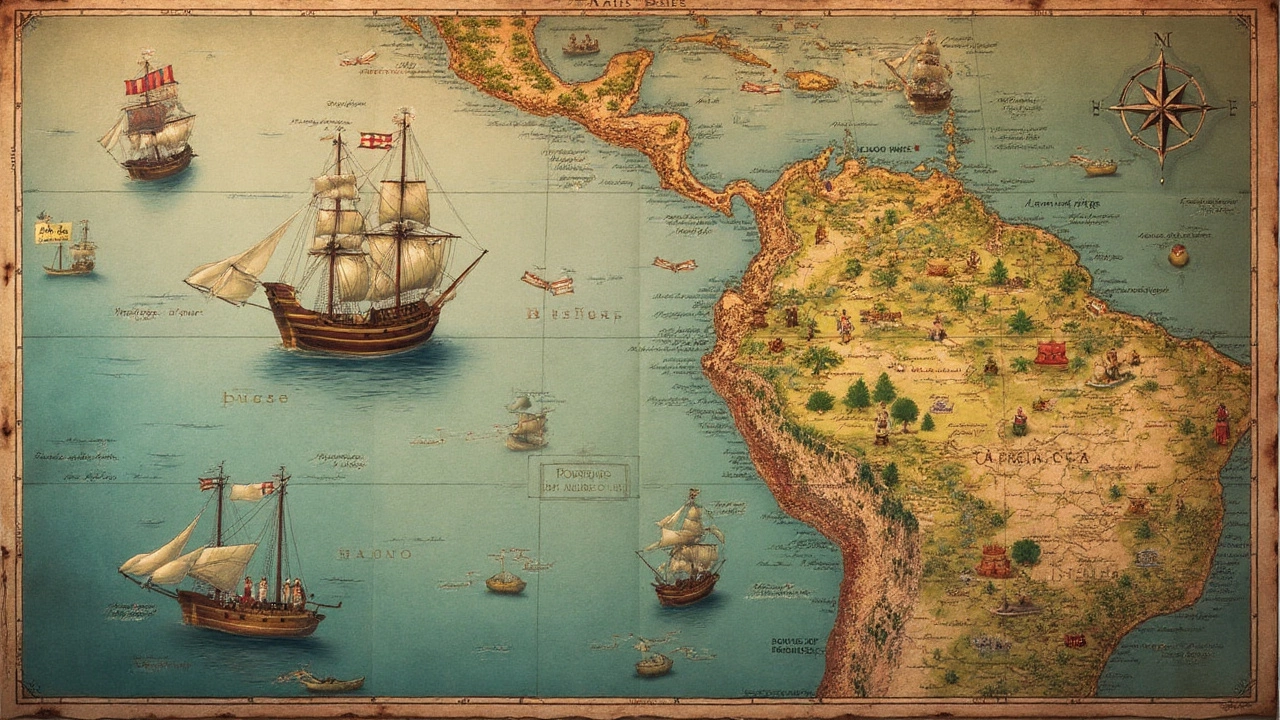Why Brazil Speaks Portuguese
Ever wondered why a huge South American country talks in Portuguese and not Spanish? The answer lies in a mix of history, politics, and a few lucky breaks. When you get the story, the language feels less like a mystery and more like a natural part of Brazil’s daily life.
History of Portuguese in Brazil
In 1500, Portuguese explorer Pedro Álvares Cabral claimed the new land for Portugal. Unlike the Spanish, who spread across much of the continent, the Portuguese focused on the eastern coastline. They set up sugar plantations, built towns, and brought over settlers. Over the next two centuries, Portuguese became the language of administration, trade, and church services.
Native peoples spoke many languages, but the colonists pushed Portuguese in schools and official matters. The Dutch briefly occupied parts of the north in the 1600s, but they left the language unchanged. By the time Brazil declared independence in 1822, Portuguese was already spoken by most of the population, even if regional accents varied.
How Portuguese Shapes Brazilian Culture
Today, Portuguese is more than just a way to talk. It ties together music, food, and sport. Think of samba lyrics that roll off the tongue or the way a football chant unites a stadium. The language also adapts – Brazil has words like "cafuné" and "saudade" that you won’t find in Portugal.
Education and media reinforce Portuguese every day. TV shows, newspapers, and social media all use the Brazilian version, which keeps the language fresh and relevant. Even immigrants who move to Brazil quickly pick up Portuguese because it’s everywhere – from street signs to grocery lists.
So, the next time you hear a Brazilian friend say "obrigado" or watch a match where the crowd shouts "gol", you’ll know it’s the result of centuries of Portuguese influence. It’s a simple answer to a big question: Brazil speaks Portuguese because history chose that language, and the people have made it their own ever since.
Why Do Brazilians Speak Portuguese? History, Language, and Surprising Facts

Unravel why Brazil speaks Portuguese and not Spanish. Explore the real historical twists, colonization, and cultural quirks in Brazil’s unique language story.
